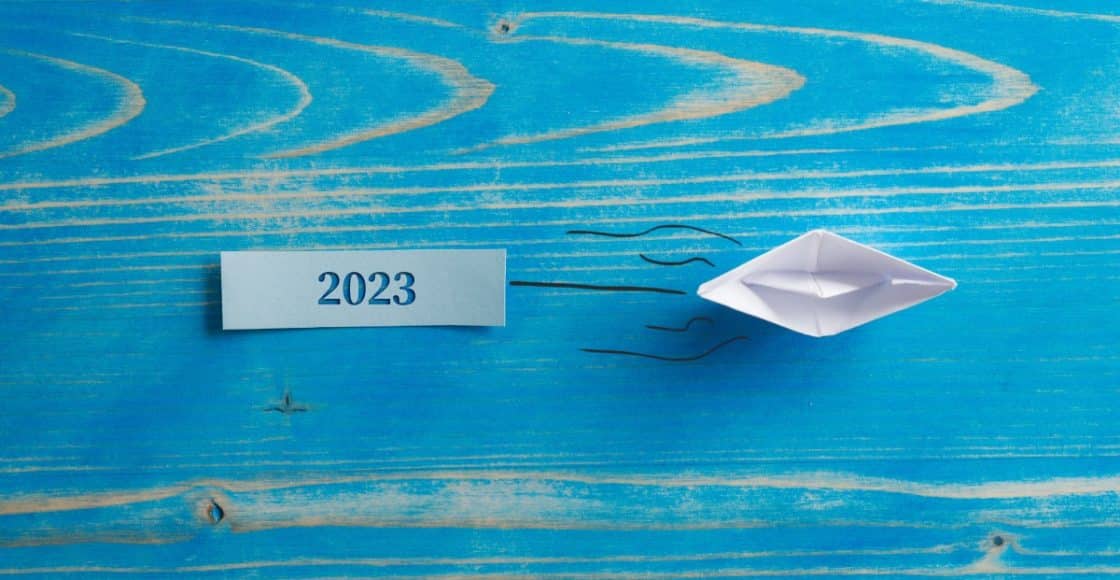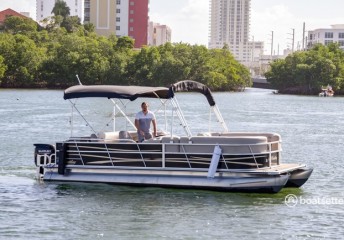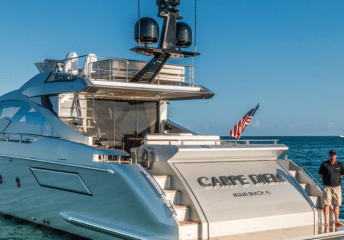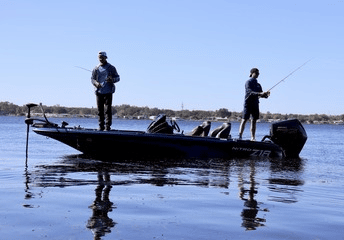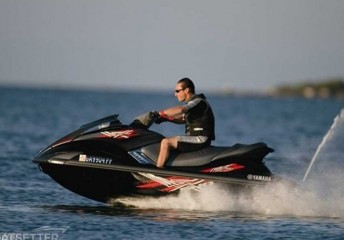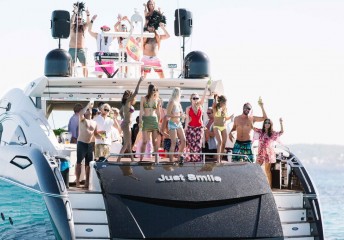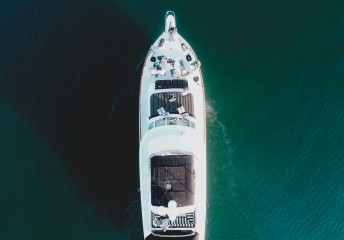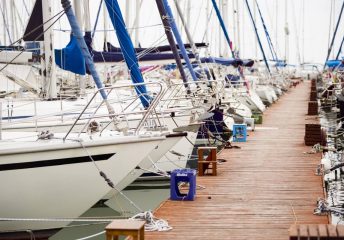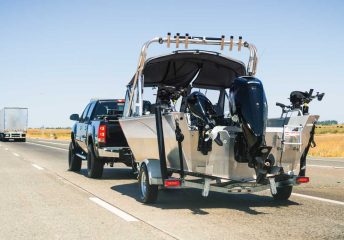The 5 Biggest Boating Stories of 2023
Last Updated on November 29, 2023 by Boatsetter Team
Some years, the biggest boating stories are new boats. There were certainly some exciting model premieres in 2023, such as the Viking 90 Convertible, the Blackfin 400CC flagship, and a whole new brand called Navan by Quicksilver that promises high-end standard technology.
But for 2023, the biggest stories weren’t about specific boats. They were about technology and issues that are either actively reshaping, or that are poised to reshape, the world of recreational boating as we know it. Here’s a look at the five biggest boating stories of 2023:
- NOAA’s speed proposal
- Assisted docking
- E-boats
- Alternative fuels
- Economic roadblocks
Rent. List. Share—Only at Boatsetter
1. NOAA’s speed proposal
No government proposal has drawn as much ire from recreational boaters and fishermen as the one that the National Oceanic and Atmospheric Administration put forward at the end of 2022.
Frank Hugelmeyer, head of the National Marine Manufacturers Association, immediately called it an “existential threat” to the marine industry, with the proposed rule endangering the very existence of boatbuilders, marinas, tackle shops, fishing tournaments and more. The NMMA launched an effort to fight the government proposal, joining with other organizations such as BoatUS, the American Sportfishing Association and Guy Harvey Ocean Foundation.
The proposal by NOAA would force boats as small as 35 feet to slow down to 10 knots or less along much of the Eastern Seaboard during large swaths of the calendar year, in an attempt to end vessel strikes of endangered North Atlantic right whales. Government officials say the problem with vessel strikes is coastwide.
Industry experts say that such a rule would make it impossible for many people to go boating, especially if they enjoy offshore fishing. Industry experts also say that incidents of recreational boaters colliding with whales are so few and far between, such a rule is vastly overreaching.
In June, Hugelmeyer testified before Congress, urging lawmakers to fund research into technology as a better way to try and protect the whales. He said:
“NOAA’s proposed rule would be the largest restriction of Americans’ shared access rights to public waters, would put boaters at risk on the water, and decimate tens of thousands of businesses in coastal communities along the Atlantic Seaboard. Innovative technologies, real-time tracking and monitoring tools offer a more viable solution to protect all whales while allowing for continued recreational-marine-related economic contributions along the East Coast.”
A bipartisan group of U.S. senators have since proposed legislation to prohibit NOAA from issuing a rule that modifies or replaces the existing North Atlantic right whale vessel-strike reduction regulation until technological solutions recently authorized by Congress can better track whales.
Discussions about that legislation, and the battle over NOAA’s proposal, are widely expected to carry on well into 2024 and possibly beyond.
2. Assisted docking
Ask any marina manager, boatbuilder or boat dealer, and they’ll tell you the No. 1 fear that most boaters—especially new boaters—share is trying to dock the boat. It doesn’t matter what size, style or type of boat it is. People bite their fingernails to the bone just thinking about how to line up the approach to a dock, properly assess the wind and currents, and get the boat into position to tie off the lines.
For this reason, assisted-docking features have long been a holy grail for the researchers who make technology that gets built into boats. In 2023, a lot of that research bore real fruit with assisted-docking technology that’s becoming more science than fiction.
Raymarine, which most boaters recognize as a major player in helm electronics, formed a partnership with Avikus to create NeuBoat Dock. It’s a six-camera system that ties into a chartplotter to help the skipper with close-quarters maneuvering (such as docking the boat).
That announcement came a couple of years into engine behemoth Volvo Penta launching its Assisted Docking technology, which continues to gain ground as well, and can now be included with some boat refits. The Volvo Penta system lets skippers use a joystick to control the boat’s path and speed, while the technology compensates for wind and current.
Expect more advancements in this technology in the years to come, as boaters get used to the way it works, and more and more newcomers demand it as a standard feature on boats they’re thinking about buying.
READ MORE: 33-year-old with a six-figure side hustle: Boatsetter
3. E-boats
Electric-powered vehicles are becoming increasingly popular on roadways. Now, the push is on to bring electric-powered vessels to boaters.
This past year saw several new launches that point toward the future of e-boats. Chris-Craft brought out its prototype for the Launch 25 GTe, a bowrider that reportedly has a 50-mph top speed, and that garnered a good deal of attention at the big boat shows. Brunswick Corp. unveiled Veer, which is a new boat brand created to work with Mercury Marine’s Avator electric outboards.
Volvo Penta and the global boatbuilding powerhouse Groupe Beneteau launched a hybrid-electric prototype boat called the Jeanneau NC37, and catamaran builder Sunreef displayed its first 80 Power Eco, complete with solar panels built right into the hull of the boat. Blue Innovations Group, which is run by Tesla’s former director of global manufacturing, reportedly has an R30 electric boat ready to go in a matter of months!
Experts all across the marine industry say these launches are just the first steps in creating the future of electric-powered boating. Further developments involving charging stations and battery capacity are also in the works.
4. Alternative fuels
Another way that boating is poised to become more eco-conscious is with the use of alternative fuels that can run existing engines originally built for gas or diesel fuel.
The Italian boatbuilder Azimut made major news in 2023 by announcing it was going to offer HVOlution fuel in the tanks of boats it delivers to new owners going forward. HVOlution is made by Eni Sustainable Mobility, which turns renewable raw materials into the biofuel. According to Eni, this is a hydrogenated vegetable oil biofuel made from “waste raw materials and vegetable residues, or from oils generated from crops that do not compete with the food chain.” Reportedly, the alternative fuel can help reduce emissions up to 90%.
Meanwhile, in the United States, Suzuki organized a nearly 800-mile trip up the East Coast using biofuel aboard an outboard-powered center console. “We thought that making a voyage from our home state of Florida to our nation’s capital—running exclusively on sustainable fuel—would be a great way to call attention to this,” the company said at the time. Suzuki ended the trip in Washington, D.C., where its representatives met with lawmakers to talk about the future of sustainability in the boating industry.
Yamaha, too, helped to demonstrate the possibility of biofuels. “There are currently 12 million existing boats in the market,” said Ben Speciale, president, Yamaha U.S. Marine Business Unit. “The option of using biofuel within these vessels paves a path to carbon neutrality within products already on the water.”
5. Economic roadblocks
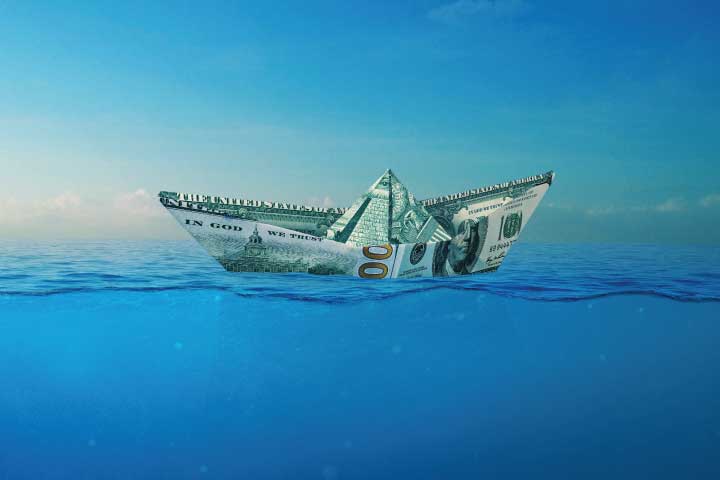
The other big news item this year was battles that consumers are having when it comes time to buy a boat. These economic roadblocks included not just inflation on prices in general, but also high interest rates that affect the cost of boat loans, and soaring insurance premiums that sometimes make it impossible to insure a newly purchased boat.
Some leading boat dealers reported being at the point of encouraging would-be boat buyers to secure an insurance policy before they even try to close a deal on a boat loan or straight-up purchase. That’s how hard it can be to get an insurance policy right now at a reasonable rate. Costs keep increasing with every major storm that damages boats, especially in Florida.
Add those insurance costs to high interest rates that can double or triple the monthly payment on a boat loan compared to a few years ago—and then add inflation on everything from fuel prices to the cost of snacks to bring on board for the day—and many consumers simply can’t get the deal done.
On the flip side, there has been increased interest in club memberships that give people access to boats through a fee, but keep the ownership of the boat in the club’s name. Freedom Boat Club, for instance, just announced its 400th location. Here’s what the company had to say: “We have seen incredible growth around the entire Freedom network over the past few years both in our territory and globally as we continue to democratize boating by providing access and training to new boaters.”
Other stories to read:
About us
Boatsetter is the go-to app for boat rentals and on-water experiences. Whatever the adventure, we’ve got a boat for that—Set sail, start the party, go yachting, make your trophy catch, and hone your watersports skills! Download the Boatsetter app (App Store | Google Play). Make sure to follow @boatsetter on Instagram, and tag us in all your boat day pictures for the chance to be featured.
Rent. List. Share—Only at Boatsetter

Kim Kavin has been on boats in more than 50 countries and islands, including in the Caribbean, Mediterranean, South Pacific, Indian Ocean and Southeast Asia. She grew up learning to steer a ski boat and Hobie Holder at her grandfather’s lake house in New Jersey, and went on to spend time aboard everything from America’s Cup racing sailboats to submarines.
Kim is a PADI-certified scuba diver and animal lover who always enjoys a good, long look around a coral reef. Her award-winning writing and editing regularly appears in national marine magazines and on leading websites. In her early years, she was a Dow Jones editing intern and a graduate of the University of Missouri-Columbia School of Journalism. When she’s not writing, Kim can usually be found hiking northwest New Jersey’s beautiful park trails with her adopted shelter mutt, Ginger.
